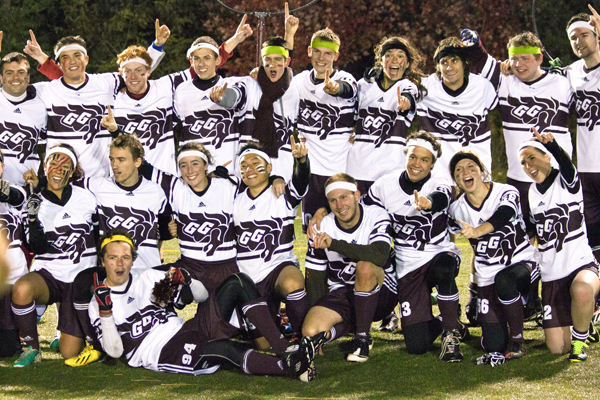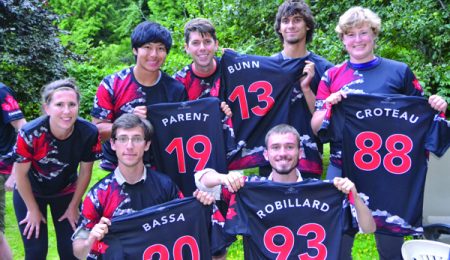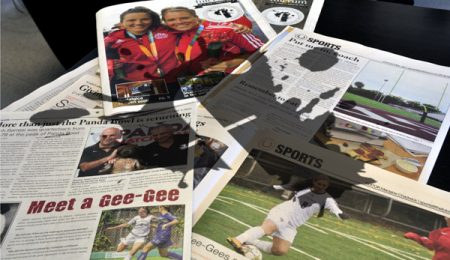Gee-Gees Quidditch catches every snitch on the pitch to win Canadian Cup
On Nov. 9 in Toronto, the Canadian Cup featured 16 teams from various universities competing for four spots at Quidditch World Cup, established by the International Quidditch Association (IQA).
The University of Ottawa quidditch teams showed strong poise Nov. 9 as they placed first and third at the Quidditch Canadian Cup. Both the Gee-Gees Quidditch and Ottawa Maple Rush teams have advanced to the Quidditch World Cup in Myrtle Beach, S.C. in April.
In a pool play game, the Maple Rush narrowly lost to Carleton after a contested call negated an earlier snitch snatch and eventually sent the game into overtime where Maple Rush lost. Despite the loss, Maple Rush was able to secure the fourth bid for World Cup.
Since the sport’s birth, authority amongst quidditch athletes has grown partly due to the athleticism involved. Contrary to popular belief, brute strength and agility are at the forefront of the sport, and players are consistently injured.
Throughout the game, two ambulances had to be called to take away injured players—one with a dislocated shoulder and another with a lower back injury. There was also an assortment of bruises and scrapes and one chest contusion.
In the final, the Gee-Gees claimed the snitch and defeated Carleton with a score of 120–50. The Gee-Gees were awarded a bottle of maple syrup topped with gold foil for their Canadian Cup win.
Third-year human kinetics student and head coach Rebecca Alley is extremely excited about the team’s success and their spot in the upcoming World Cup.
“I feel so privileged to be part of this team,” she said. I’ve been the coach since the team started in 2011 and to see the growth since our first year makes me so proud of each and every person on the team.”
Strategy continues to play a valuable role in the games’ results. With continuous substitutions and player changes throughout the game, teams have learned to adapt to various situations and to establish tactics, like playing the best players at once or playing an even strategy throughout the game. The Gee-Gees thrive on team effort.
Adam Robillard, a third-year sociology student and captain of the Gee-Gees Quidditch team highlighted team effort as one of the team’s strengths.
“There are very few individual efforts,” he said. “Each player is always supported by another, which is so important offensively and defensively.”
In the coming World Cup season in April, the U of O will send two teams to represent Canada. Canada may send three or four if Carleton and McGill find the proper funding.





